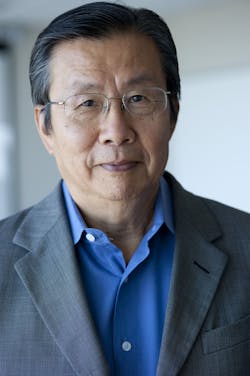
I think I could have gotten a job I really wanted if I had given a better presentation of my Ph.D. thesis at an interview. What can I do to improve my presentation skills?
Presentation skills can be improved over time if you think about how you could have done it differently after each presentation. In some cultures, children are encouraged to make speeches at the dinner table, which helps develop their verbal skills. In my culture, children are expected to listen. At first, my talks were rather poor, and I am still working on improving. You might consider joining Toastmasters, a group that helps to improve presentation skills. I also recommend the book Presenting to Win: The Art of Telling Your Story by Jerry Weissman (Prentice Hall 2003).
Pay attention to the preparation, the flow, and the delivery of your presentations. Know your audience, and present the talk from their perspective. Your attitude should be “to serve.” In the case of a job interview, the company is probably more interested in your problem-solving skills than the specifics of your thesis work. Use your thesis to illustrate and accentuate your personal attributes. For example, you may want to weave into the specifics how you successfully obtained the results in ways that were creative and enterprising, and how you worked effectively in a collaborative team environment with limited resources.
During a presentation, it is helpful to the audience to follow the basic organizational strategy: tell them what you are going to tell them, tell them, and then tell them what you have told them. First decide on a few important messages and “wow” factors. Use the “story” to build your case, reinforcing the key points again and again to make the message stick. Accentuate points that are interesting, rather than getting mired in details. There is always time to add specifics later once you provoke interest.
To improve presentation skills, practice, practice, practice. Speak out loud, maybe in front of a mirror to work on gestures. The more you practice, the more you will build self-confidence and minimize stage fright.
Getting back to that job . . . you may want to ask that hiring person if you can provide supplemental information to reverse the decision. Persistence could be viewed as a positive trait; for sure, you don’t have much to lose, and you may even get some meaningful feedback to improve your next interview.
How do I negotiate with a very aggressive person?
You probably mean “an unreasonable person.” I believe everyone is aggressive when they are negotiating something that is important to them. Years ago I took a well-promoted negotiating class that emphasized putting pressure on your opponent to wear them down. I am not sure that works.
Instead, I highly recommend the book Getting to Yes by Roger Fisher et al., which has benefited me tremendously. The key point I remember from the book is that you shouldn’t focus on negotiating your position; you should instead try to understand the underlying reasons for the other person’s particular position and look for creative ways to get to a point of mutual satisfaction. That means you want to be well prepared, to know what is important for each side, and what people are willing and not willing to give up.
Two follow-on books, Beyond Reason: Using Emotions as You Negotiateand Getting past NO, explain how to handle difficult deals and tough emotions. Another article, “Negotiating with a 900-Pound Gorilla” by Lawrence Susskind (see www.harvardnegotiatingskills.com/pdfs/900-Pound_Gorilla_Susskind_2.06.pdf) seems to address your issue directly. So you may want to check that out.
I have learned over the years not to engage in a debate, which usually hardens the other person’s position. Rather, try to create a “pull” by helping everyone see the benefit of your viewpoint, so much so that the other side could see on their own the benefits of what you have to offer. At that stage, “yes” comes naturally.
About the Author
Milton Chang
MILTON CHANG of Incubic Management was president of Newport and New Focus. He is currently director of mBio Diagnostics and Aurrion; a trustee of Caltech; a member of the SEC Advisory Committee on Small and Emerging Companies; and serves on advisory boards and mentors entrepreneurs. Chang is a Fellow of IEEE, OSA, and LIA. Direct your business, management, and career questions to him at [email protected], and check out his book Toward Entrepreneurship at www.miltonchang.com.
